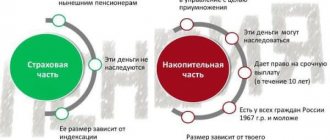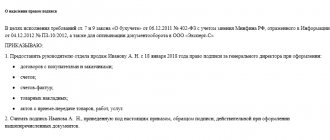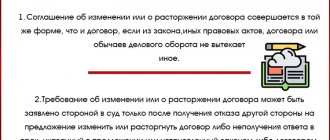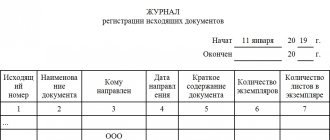Content
A lawyer’s job description establishes labor relations.
The document describes the types of employee responsibilities, functional responsibilities, rights, rules of subordination, procedure for occupation and dismissal, requirements for experience and education. The instructions are prepared by the head of the legal department. Approved by the general director of the organization.
The standard form presented below can be used when drawing up a job description for a lawyer at a manufacturing enterprise, trade organization, budgetary institution, legal assistant, or legal adviser. A number of points may differ depending on the specifics of the company.
Drafting legal documents
The first group of documents are those related to the internal organization of the enterprise. Drawing up orders for the enterprise, their approval. In budgetary organizations, no order is valid without the signature of a lawyer. All regulations and other acts affecting the rights of workers pass through it.
The legal consultant draws up samples and forms for use by employees of the enterprise. For example, mass contracting is provided by ordinary employees or representatives of the organization using forms provided by lawyers.
The second group of papers is the preparation of responses to requests from citizens and regulatory authorities.
The third group is materials on holding employees accountable (disciplinary, financial, etc.).
The fourth group is papers in connection with trials in arbitration and general courts.
Sample of a typical job description for a lawyer
I. General provisions
1. A lawyer belongs to the “specialists” category.
2. During the absence of a lawyer, his functional duties, responsibilities, and rights are assigned to another official appointed in the prescribed manner.
3. The appointment or dismissal of a lawyer is carried out by order of the general director of the organization.
4. A person with a higher education and at least two years of experience in a similar position is appointed to the position of lawyer.
5. The lawyer reports directly to the head of the legal department.
6. A lawyer must know:
- labor, civil, administrative, financial law;
- methodological materials on the legal activities of the organization;
- environmental, tax legislation;
- regulatory legal acts that regulate the production, economic, and financial activities of the organization;
- fundamentals of labor organization, economics, production, management;
- systematization, recording and storage of legal documentation using information technology;
- rules for registration, conclusion of contracts, tariff agreements;
- basics of handling computer technology and communications;
- safety rules, labor protection standards;
- rules for drawing up documentation on the economic and financial activities of an organization.
7. A lawyer is guided in his activities by:
- internal labor regulations, other governing acts of the organization;
- this job description;
- orders, instructions from the management of the organization;
- legislative acts of the Russian Federation;
- Charter of the organization.
II. Job responsibilities of a lawyer
The lawyer performs the following duties:
1. Checks compliance with legislation of draft orders, instructions, regulations and other legal documents.
2. Controls the stages of approval of draft documents by responsible employees.
3. Endorses draft documents.
4. Issues reasonable instructions to responsible employees of the organization to make changes to documents.
5. Develops constituent documents. Participates in the registration of legal entities and the handling of securities.
6. Makes changes to the constituent documents of the organization.
7. Processes claims against the organization from government agencies, contractors, and employees. Prepares responses to them, creates draft decisions on granting petitions or refusing them.
8. Prepares and forwards claims to counterparties. Monitors the progress and results of their consideration.
9. Creates draft agreements and checks their compliance with legislation.
10. Notarizes established types of contracts or maintains their state registration.
11. Prepares documents for obtaining licenses and permits that are necessary to conduct the organization’s activities.
12. Takes measures to comply with pre-arbitration dispute resolution.
13. Prepares statements of claim and submits them to the courts.
14. Examines copies of statements of claim regarding claims against the organization.
15. Represents the interests of the organization in arbitration courts.
16. Checks the legality of dismissal, transfer of employees, and imposition of penalties on them.
17. Represents the interests of the organization during inspections by control and supervisory authorities. Establishes the validity and correctness of the inspectors’ conclusions, and the accuracy of the execution of the inspection results.
EMPLOYEE RIGHTS
3.1. The employee has the right to:
- providing him with work stipulated by the employment contract;
— a workplace that complies with state regulatory requirements for labor protection and the conditions provided for by the collective agreement;
— complete reliable information about working conditions and labor protection requirements in the workplace;
— professional training, retraining and advanced training in the manner established by the Labor Code of the Russian Federation and other federal laws;
— receipt of materials and documents related to its activities, familiarization with draft decisions of the Organization’s management relating to its activities;
— interaction with other departments of the Employer to resolve operational issues of their professional activities;
— submit proposals on issues of their activities for consideration by their immediate supervisor.
3.2. The Employee has the right to demand from the Employer assistance in the performance of his official duties.
Lawyer job description template
I APPROVED General Director Last name I.O.________________ “________”_____________ ____ g.
General provisions
1.1. The company's lawyer belongs to the category of specialists. 1.2. A person with a higher legal education and at least 3 years of experience as a legal adviser is appointed to the position of corporate lawyer. 1.3. An enterprise lawyer must know: - Regulatory and methodological materials regulating the production and economic activities of the enterprise. — Profile, specialization and features of the enterprise structure. — Civil, entrepreneurial, commercial, administrative, labor, financial, tax, and other areas of legislation. — Arbitration procedural, civil procedural law, fundamentals of criminal procedural law. — Standards of paperwork for legal documents. — The structure of state bodies, local governments, judicial bodies. — The procedure for systematizing, recording and maintaining legal documentation using modern information technologies. — Basics of administration. — Ethics of business communication. — Economics and organization of production, labor and management. — Fundamentals of labor legislation. — Labor protection rules and regulations. 1.4. Appointment to the position of a lawyer and dismissal from the position are made by order of the head of the enterprise. 1.5. A corporate lawyer reports directly to the head of the enterprise. 1.6. During the absence of a lawyer (business trip, vacation, illness, etc.), his duties are performed by a person appointed in the prescribed manner. 1.7. This person acquires the corresponding rights and bears responsibility for improper performance of the duties assigned to him.
Origin and meaning of the word
The term "legal consultant" comes from the German word "Jurisconsultus", which in turn was borrowed from the Latin "juris consultus". Translated into Russian, the term means a specialist who knows the laws. If you look closely, neither the German nor the Latin version has a “t”.
The word "legal consultant" does not come from the word "lawyer". If this were so, then after “juris” in the word “legal consultant” the letter “t” would certainly be indicated.
Job description of a lawyer
The job description specifies the scope of duties and work that must be performed by a person holding a certain position. The job description in accordance with the All-Russian Classifier of Management Documentation, or OKUD, OK 011-93 (approved by Gosstandart Resolution No. 299 of December 30, 1993) is classified as documentation on the organizational and regulatory regulation of the organization’s activities. The group of such documents, along with the job description, includes, in particular, internal labor regulations, regulations on the structural unit, and staffing.
Is the profession of a legal adviser necessary?
Legal counsel is a fairly common profession in the modern world, since for quite a long time people in this profession have been in high demand among companies. The field of this activity has always needed and will continue to need good specialists, although higher educational institutions continue to graduate a huge number of people in this profession. But there are still companies that continue to require good legal counsel.
A legal adviser is a person who must graduate from a university in this specialty, since with a secondary specialized education it is impossible to effectively fulfill his duties.
How to draw up a job description
A job description is usually drawn up on the basis of qualification characteristics contained in qualification directories (for example, in the Qualification Directory of Positions of Managers, Specialists and Other Employees, approved by Resolution of the Ministry of Labor dated August 21, 1998 No. 37).
For workers who are hired by blue-collar professions, unified tariff and qualification directories of work and blue-collar professions for the relevant industries are used to determine their labor function. Instructions developed on the basis of such reference books are usually called production instructions. However, in order to unify and simplify internal documentation in an organization, instructions for blue-collar professions are often also called job descriptions.
When drawing up job descriptions, organizations are also guided by professional standards.
Since the job description is an internal organizational and administrative document, the employer is obliged to familiarize the employee with it against signature when hiring him (before signing the employment contract) (Part 3 of Article 68 of the Labor Code of the Russian Federation).
Clarification of legislation
This is expressed in giving oral advice and in drawing up memos that reflect the employee’s opinion on a particular issue. Sometimes a memo is the only way to protect yourself from the consequences of the manager’s illegal actions and accusations of allowing them.
Lawyers formalize their opinion by drawing up an opinion. Communication about changes in legislation is not only made at the request of employees. There must be initiative on the part of the lawyer.
If the company has an assistant
The job description of a legal assistant is somewhat different from the document regulating the activities of a legal adviser.
Firstly, the level of requirements and knowledge that he must have is reduced (often students or specialists who have just completed their studies and have no practical experience are invited).
Secondly, less knowledge is assumed. Responsibilities include providing assistance in drafting documents and preparing templates. His job is to perform technical functions, he does not make independent decisions and all his activities are subordinate to the manager.
The same applies to rights: compliance with Labor Code norms, provision of a workplace, etc.












